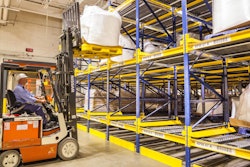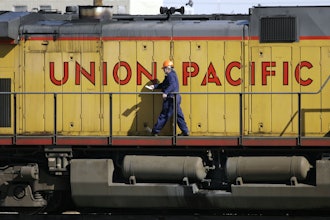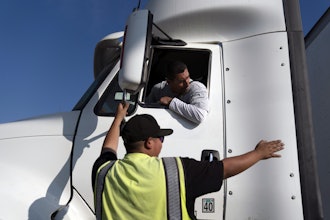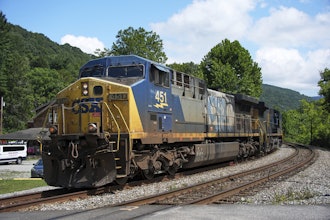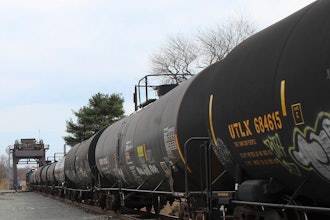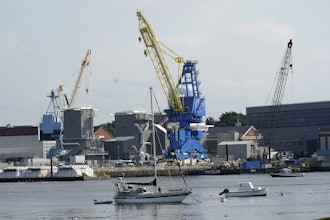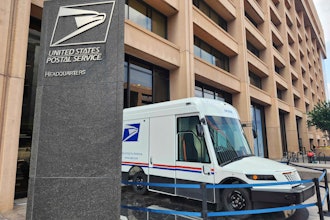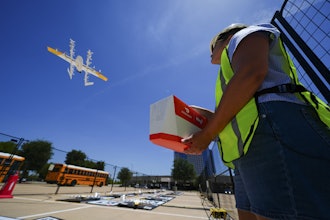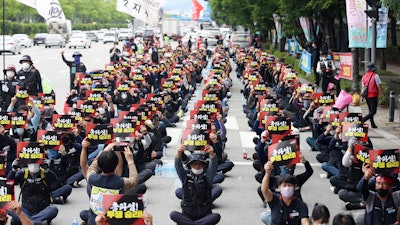
SEOUL, South Korea (AP) — South Korean police have detained several dozen truckers for blocking traffic and disrupting the movement of goods near factories as a nationwide strike extended into a fourth day.
The truckers are urging the government to provide a minimum wage in the face of soaring fuel prices that are squeezing their finances.
As of Friday morning, police had taken about 30 truckers into custody since the strike began Tuesday, the National Police Agency said. Sporadic clashes broke out around the country, including near an alcoholic beverages factory outside Seoul where 15 people were detained for allegedly obstructing business.
Lee Eung-joo, a representative of Cargo Truckers Solidarity, said police have released 29 out of 40 truckers who had been detained as of Friday evening. He said at least nine truckers were slightly hurt in scuffles with police, but none was hospitalized.
About 7,500 truckers joined the strike, demanding that the government extend temporary rules guaranteeing minimum freight rates which are set to expire at the end of 2022.
Government officials and business leaders worry the strike may further strain an economy strapped by inflation and possibly hit global supply chains by slowing shipments of semiconductors and other major South Korean exports.
However, disruptions seemed limited since companies ordered supplies in advance in anticipation of the strike. Officials also sought to keep shipments moving by providing police escorts and temporarily allowing private trucks to move industrial goods.
The Ministry of Land, Infrastructure and Transport has been negotiating with the truckers over the minimum wage scheme. It said the overall utilization rate of containers at ports and other major logistics hubs was 70.7% as of Friday afternoon, above the usual rate of 65.8%.
But it said shipments were slowed in the southern ports of Ulsan and Busan due to disruptions from the strike, which has mainly affected the automobile, steel and cement industries.





